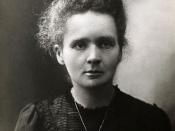Wole Solinka's Death and the King's Horseman shows but one small example of how European and American people disrupt and disrespect other cultures. As said by Olunde, "I discovered that you have no respect for what you do not understand." Those who are from the European tradition, including Americans, have no understanding, and no respect, of how other cultures view death.
Here we fear it. It is something to be avoided for as long as possible, eventually (thanks to science) postponed indefinitely. Christian doctrine does not believe that there is any honor or hope for those who choose self-destruction. In many other cultures, there is no such equivalent for Hell, for rarely is death a punishment. Rather, life with shame is their punishment. In the European world, suicide is seen as an escape from reality, from responsibility.
In the Nigerian Yoruba culture, death is a natural progression, the way of life.
There is no sense in postponing death; it is to be welcomed with open arms. It is seen as shameful to miss your time to die, as epitomized by the pitiful character of Elesin. The Western culture does not understand this, and therefore causes the downfall of Elesin in the eyes of his son, and his people.
In Western drama, the belief that death is a punishment is rampant. The downfall of a tragic character is typically death! Death was to be Elesin's greatest moment, the best thing he could have done for his people. But instead, his living beyond that was his downfall. In our culture, it is the majority opinion that we value life over honor. Why else do we have prisons? In African cultures, are there equivalents of prisons? Perhaps their prison, like Elesin's, are not walls and bars, but really the fact that they...


